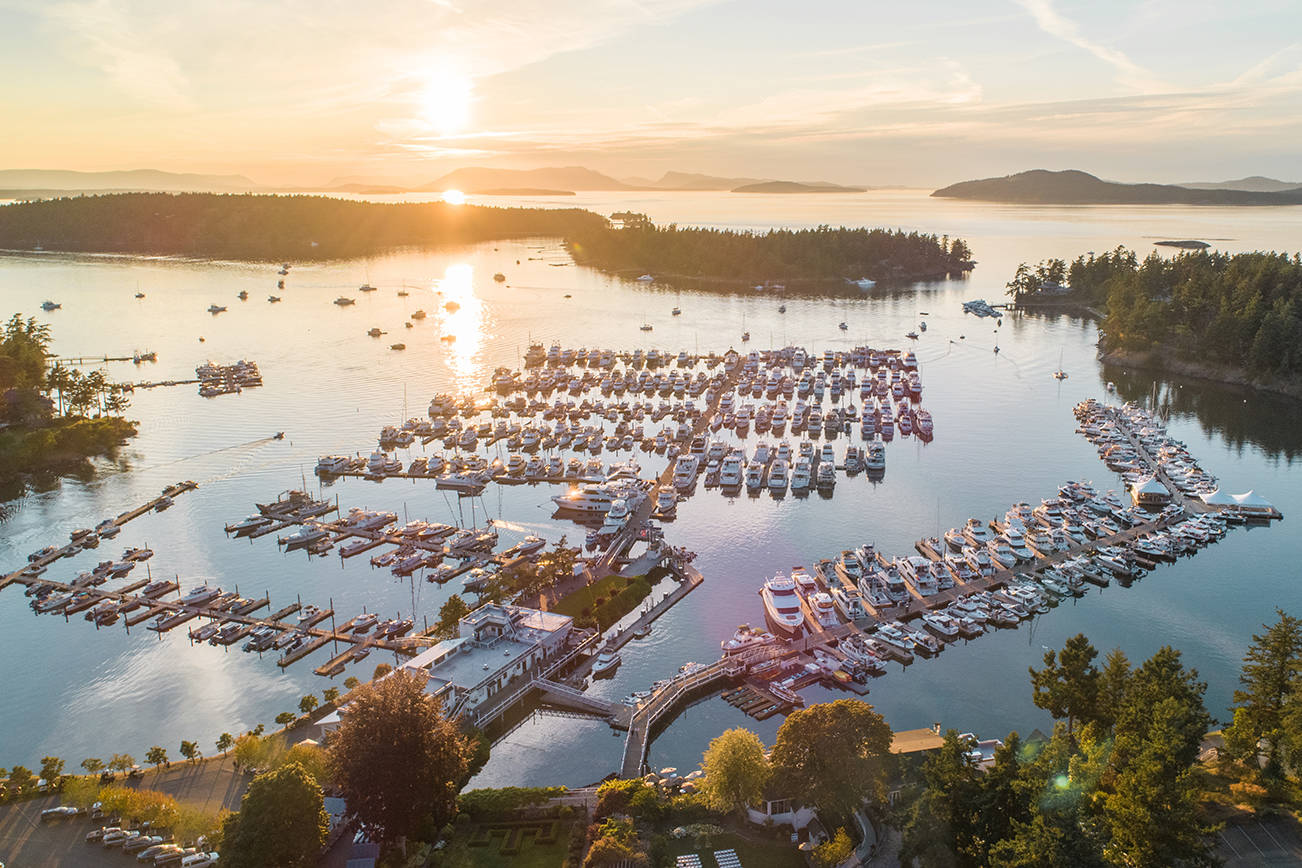The pandemic has not been smooth sailing and many U.S. and Canadian boaters are itching for the border to reopen.
The U.S.-Canada border closed for the first time since 1867 on March 18, 2020. More than a year later, the closure keeps getting extended. So far, the tentative date is sometime this month, but Tami Hayes, Port of Friday Harbor harbormaster, said she is unsure of when it will be official.
“There are some customers who as the border opens, they will untie and head out the next day,” Hayes said. “They’re probably chomping at the bit would be my guess.”
The closure has taken a toll on local marinas. Hayes explained that many people with permanent slips will often leave for long trips up to Canada, but with the closure of the border, that is not a viable option. She said the port usually has anywhere from 30 to 50 customers leave for Canada during the summer.
Jack Riley, Roche Harbor Resort’s social media manager and marina supervisor, said, “Normally, a lot of boats with permanent moorage will go on long trips and while they’re gone the marina is able to use those other slips for guests.”
Riley added that these slip owners used to alert the marina as to when they’d be gone, so the resort could make reservations in advance. Now, there is barely any room for others to enjoy the marina.
“Roche Harbor is a place for family traditions,” Riley said. “Many people come here year after year and now they can’t because we don’t have that space.”
Being the social media manager of the resort, he said he has seen a lot of feedback from followers, particularly on photos of the marina, commenting that they miss visiting.
“People seem to be living vicariously through those posts,” he said.
Roche Harbor now offers a waitlist, but you have to be in the harbor and call in.
“People are thinking, ‘Well why should I spend all that money on gas if I’m not sure I’ll even be able to make it in?’” Riley said.
Unlike Roche Harbor, The Port of Friday Harbor has access to all the town amenities once you get on land. The waitlist has caused some issues.
“Instead of 30 boats anchored like usual, we may have 130 boats at anchor. So if they don’t have solar panels, then all of a sudden they need power, water, fuel and to pump their holding tanks out,” Hayes said. “We’re busting at the seams.”
Hayes also said that with the harbor being so packed, boats are anchoring where they are not supposed to, leading to a lot of damaged boats or boats ending up on the rocks. Vessel assist has been very busy, Hayes said, urging boaters to always call in before anchoring. With so many people out boating, Hayes said this causes a wave of visitors to come into the grocery stores. This puts items at risk for going out of stock, which is hard on locals.
“We can’t just drive over to the next town’s Safeway,” she said.
On top of that, Hayes said that a lot of distributing companies are short-staffed, making the process of getting goods to the island even harder.
The marinas have also been missing a lot of Canadian guests. While the border is open for Canadians to come into the U.S. without protocol, they still will have to quarantine when they return to Canada, so most don’t bother with it, Hayes explained.
“We miss the Canadian boaters,” Riley added. “They’re always a lot of fun to have at the marina. Hopefully, we can have things go back to normal soon so we can continue enjoying what beautiful waters we each have to offer.”



